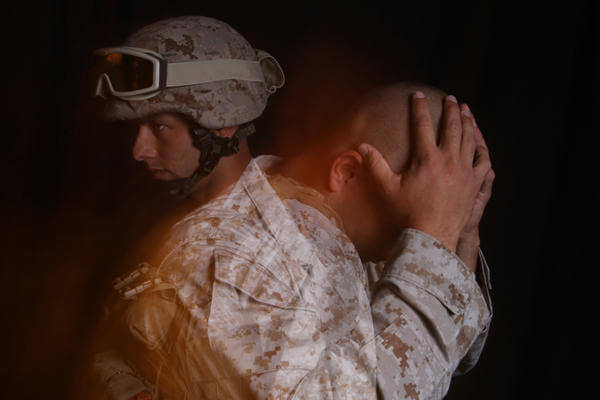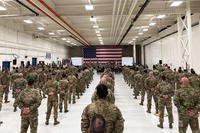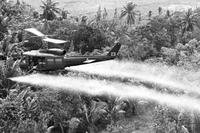The stress response—often referred to as the "fight-or-flight response"—is your body's rapid and automatic switch into high gear when faced with a threat or challenge in the environment. These stressors set off a complex alarm system to communicate with regions of the brain that control mood, motivation, and fear. It's easy to imagine how this reaction helps a service member deal with a physical threat, particularly when in combat. Service members need the energy, speed, concentration, and agility to protect themselves or to escape danger.
The problem, however, is that this automatic stress response is activated by factors that create stress.
The good news about stress: it can alert you to danger, orient you to meet deadlines, and motivate you to get things done.
The bad news about stress: chronic stress can create problems in your body and your relationships.
While stress is something that we all live with, the stress of military deployments should not be minimized as ordinary.
The fears that loved ones have for the safety and well-being of their service members, as well as for their families, are very real. Those fears create an extraordinary amount of stress for everyone affected. After the extended period of war that modern-day military families have experienced, including multiple deployments, it is hard for those families not to feel isolated, overwhelmed, and stressed out.
"Of course you fear the worst, that you won't see them again. And honestly, I feel there isn't a way to prepare for those feelings. As a military spouse, you know that's their job and it's part of the risk but you can never fully grasp that feeling until your loved one is deployed."
—Army spouse
| What Happens During Prolonged Stress | |
| Thoughts |
Thought process: narrow focus, poor con-centration, poor memory, rapidly shifting from thought to thought or activity to activity until becoming too tired to deal with anything, and then becoming numb and avoidant. Thought content: overfocusing on problems, losing perspective, starting to identify with life as a series of problems, and inability to focus on other, more positive aspects of. |
| Emotional | Worried, depressed, frustrated, angry, irritable, sad, and then not able to feel much at all. |
| Physical | Discomfort in the stomach, chest, muscles, or head; eyes tired and strained; poor sleep and tired most of the time (or sleeping too much, but not feeling rested); frequently sick; changes in appetite; low sexual interest or responsiveness. |
| Behavioral | Less motivation and less interest in things that used to be interesting; unable to "get going." |
| Social | Less interested in social activity, more withdrawn (or sometimes clingy), more apt to snap at othersmore self-absorbed, and less able to be empathetic. |
One of the best ways to counter deployment stress is to focus on what you can control as opposed to all the things you can't control.
Stress is a part of life's experiences. It can mobilize us when it's temporary and focused, and can immobilize us when it has no immediate purpose and becomes chronic. Therefore, learning how to cope with stress is an essential skill to develop.
This excerpt is provided courtesy of the acclaimed free digital resource "Everyone Serves". Download your free copy with additional media content today at everyoneservesbook.com.

















